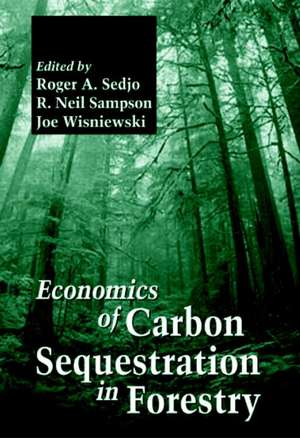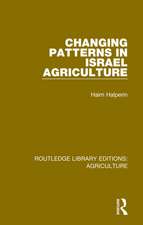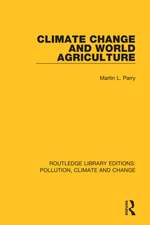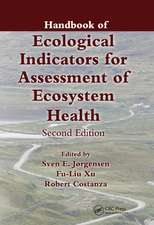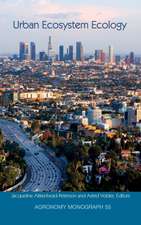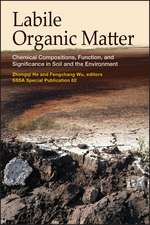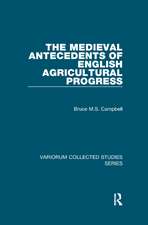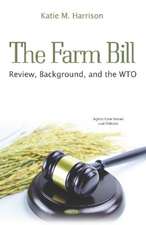Economics of Carbon Sequestration in Forestry
Autor Terry J. Loganen Limba Engleză Hardback – 29 dec 1997
The workshop detailed in this book concentrated on how economic principles and analysis could contribute to the planning of forestry projects aimed at affecting terrestrial carbon balances. More than 30 international scientists came together for one week near Stockholm, Sweden and divided into working groups charged with addressing a specific issue and preparing a paper within this time frame. This book contains the majority of papers presented at this meeting, and includes both the working group papers and the individually presented papers.
| Toate formatele și edițiile | Preț | Express |
|---|---|---|
| Paperback (1) | 352.95 lei 6-8 săpt. | |
| CRC Press – 2 dec 2019 | 352.95 lei 6-8 săpt. | |
| Hardback (1) | 1015.26 lei 6-8 săpt. | |
| CRC Press – 29 dec 1997 | 1015.26 lei 6-8 săpt. |
Preț: 1015.26 lei
Preț vechi: 1238.12 lei
-18% Nou
Puncte Express: 1523
Preț estimativ în valută:
194.26€ • 203.38$ • 160.75£
194.26€ • 203.38$ • 160.75£
Carte tipărită la comandă
Livrare economică 05-19 aprilie
Preluare comenzi: 021 569.72.76
Specificații
ISBN-13: 9780849311581
ISBN-10: 0849311586
Pagini: 372
Dimensiuni: 178 x 254 x 23 mm
Greutate: 0.88 kg
Ediția:1
Editura: CRC Press
Colecția CRC Press
ISBN-10: 0849311586
Pagini: 372
Dimensiuni: 178 x 254 x 23 mm
Greutate: 0.88 kg
Ediția:1
Editura: CRC Press
Colecția CRC Press
Public țintă
ProfessionalCuprins
Workshop Overview: Managing Terrestrial Carbon Balances Via Forestry: Economic Considerations. Working Group Papers: An Economic Approach to Planting Trees for Carbon Storage. Sequestering Carbon in Natural Forests. Consideration of Country and Forestry/Land-Use Characteristics in Choosing Forestry Instruments to Achieve Climate Mitigation Goals. Conceptual Issues Related to Carbon Sequestration: Uncertainty and Time. Individual Papers: Incorporating Climate Considerations into the National Basic Plan in Japan. Economic Impact of Climatic Change on the Global Forest Sector. Silvicultural Options to Conserve and Sequester Carbon in Forest Systems: Preliminary Economic Assessment. CO2-Taxing, Timber Rotations, and Market Implications. Compensating for Opportunity Costs in Forest-Based Global Climate Change Mitigation. Optimal Subsidies for Carbon: Cost-Effectiveness and Distributional Considerations. Carbon Sequestration and Tree Plantations: A Case Study in Argentina. The Economic and Environmental Impact of Paper Recycling. Forest Biomass-Based Mitigation Strategies: Does the Timing of Carbon Reductions Matter? Forestry Options for Sequestering Carbon in Mexico: Comparative Economic Analysis of Three Case Studies. The Physical Risks of Reforestation as a Strategy to Offset Global Climate Change. Can Recycling of Waste Help us to Sequester Carbon in Forestry? Experimental Results and Economic Visions. The Cost of Carbon Sequestration in Forests: A Positive Analysis. The Time Value of Carbon in Bottom-Up Strategies. Coercion and Enterprise in the Provision of Environmental Public Goods: The Case of Carbon Sequestration in the United States. A Dynamic Model of Forest Carbon Storage in the United States During Climatic Change. Forest Biomass as Carbon Sink-Economic Value and Forest Management/Policy Implications. Incremental Costs of Carbon Storage in Forestry, Bioenergy, and Land-Use. Assessing Timber and Nontimber Values in Forestry Using a General Equilibrium Framework.
NTI/Sales Copy (NTI already done and approved)
NTI/Sales Copy (NTI already done and approved)
Descriere
This book features the main issues discussed in the workshop, "Economics of Carbon Sequestration in Forestry," held in Bergendal, Sweden. It concentrates on how economic principles could contribute to the planning of forestry projects aimed at affecting terrestrial carbon balances.
